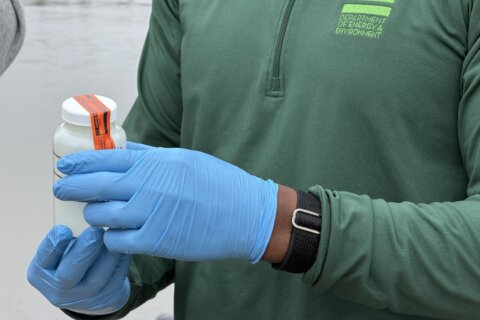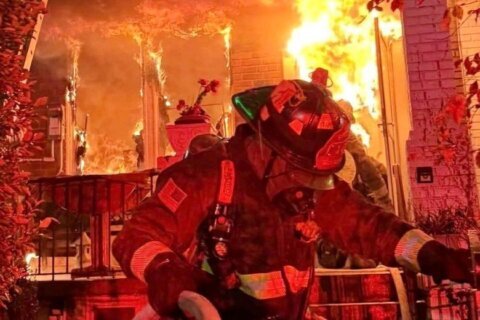Mayor Muriel Bowser announced what she says is a new tool in the fight against crime in the D.C. area: a center where regional and federal police and transportation agencies will monitor crime in real time.
Bowser made the announcement of the Real-Time Crime Center (RTCC) on Thursday at the Marion Barry Building in Northwest D.C. “I am confident that we will turn crime trends down,” she said, citing the focus on a multipronged approach to the rising crime problem in D.C.
Nine police agencies including the Amtrak police, Arlington County police, U.S. Capitol Police, Fairfax County police, Metro Transit Police, Montgomery County police, Prince George’s County police and the U.S. Secret Service Uniform Division will work with D.C. police to monitor and analyze data collected at the new center.
That data will include “CCTV (Closed Circuit Television) cameras, emergency calls and other technology,” Bowser said.
The plan also calls for coordination with D.C.’s Homeland Security and Emergency Management Agency and the D.C. Housing Authority Police Department that will support the center, according to a news release from the mayor’s office.
The ATF, FBI and U.S. Marshals Service will also be involved, according to the mayor’s office.
D.C. Police Chief Pamela Smith echoed Bowser: “We will utilize any technology that we can look at in order to fight crime in the District of Columbia.”
Smith said the new effort, with its focus on technology and real-time response, follows the recently announced ATLAS strategy (Action Teams Leaving Areas Safer) and “is a mobile force operation where we increase our visibility and presence across the district to address crimes each day.”
The strategy will be “better supported when deployed alongside a real-time crime center,” Smith said.
There are times when criminals will use the ability to cross into a neighboring jurisdiction to their advantage, she said.
“The RTCC (Real-Time Crime Center) will serve as a hub for our local and regional law enforcement partners to help them share information in real time,” Smith said.
Asked about specific technologies police would use, Smith said, “We will not be using AI and/or facial recognition.”
Smith said 300 cameras spread out across D.C. are often used during “First Amendment activities.”
Smith said she could not yet say how many cameras would be used in the new crime center: “We’re still in the procurement and bidding process with that.”
Asked if the center would pull resources from crime prevention efforts, Bowser said, “Not at all.”
“Most of our prevention efforts are focused in other agencies,” Bowser said. “The police of course, prevent crime by making sure that the people committing it are held accountable in working with the prosecutors in the courts.”
When it comes to the use of video surveillance and privacy concerns, Bowser said when the cameras were first introduced, there were concerns. Now, said Bowser, “the discussion is fully different.”
Bowser said at community meetings across the District, “people say how can I get a CCTV camera in my community?”
But Monica Hopkins, the executive director of the D.C. chapter of the American Civil Liberties Union, takes a different stance on privacy concerns with surveillance.
“A center where police watch what people do in the District every hour of every day is an alarming expansion of government surveillance. With no oversight, the real-time surveillance center leaves serious questions about our safety and our rights unanswered. What behavior will police be watching for? What will they do if they think they see it? How will police use what they see, and who will they share it with? And will anyone be there to ensure that police don’t violate people’s rights?
Unchecked government surveillance does not improve public safety, and it threatens the rights of all community members. Real public safety requires transparency, safeguards, and accountability.”
Bowser said D.C. Council members have seen increased interest in expanding the use of the cameras.
Bowser said, “No camera will replace a live police officer, but it does enhance the force’s ability to be in more places, if you will.”
Smith was asked whether the real-time surveillance means residents need not call 911 when crime happens. No, she said, “The expectation is that the public will continue to report crimes as they always have.”








